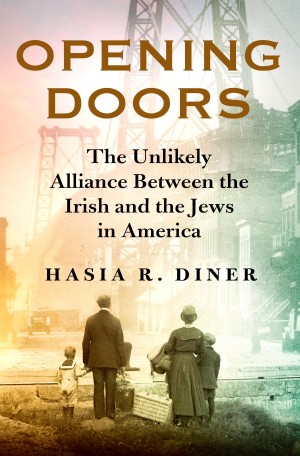This book bravely challenges age-old questions about what it means to be a Jew, what has it meant to be a Jew historically, and what the future of Judaism might hold.
To tackle such a broad-ranging topic, Donniel Hartman employs what he calls a “metastory” based on Scripture. He distinguishes between Genesis Judaism, Judaism that’s born of identification as a Jew regardless of religious or theological beliefs, and Exodus Judaism, which is commandment-focused and stems from ideals of belief and behavior.
Hartman recognizes that this is a heuristic device, but it is one that enables him to cast an eye backward toward ancient and modern Jewish history. It also allows him to focus on the present and propose an aspirational vision for the future. He argues that Judaism is strongest when all of these aspects are in play.
One of the great strengths of the book is Hartman’s knowledge of Jewish life in North America and Israel. He acknowledges, for example, that twenty-first-century Jewish life in North America is evolving. In an age of intermarriage and blurring of traditional gender boundaries, North American Jews can find new ways to flourish, within both the Genesis and Exodus modes of being Jewish.
Hartman addresses the complex issue of identity in Israel as well. He sees the broad-brush distinction of “dati” and “non-dati” — religious and not religious — as injurious to the polity. He instead advocates for a recalibration of the status quo, which would allow for a richer, more varied depiction of religious life.
With incredible depth and range, Hartman also examines the Diaspora and its increasingly complex relationship to Israel. He discusses Palestinian rights and Israeli security through the Genesis/Exodus rubric he has developed.
At the close of the book, Hartman speaks of a third covenant in addition to the Genesis/Exodus covenant: a Creation covenant to value all human beings as created in God’s image. He makes a compelling case for how Jewish particularism can be a source of healing rather than divisiveness.
Who Are the Jews — And Who Can We Become? is a deeply optimistic book, written before the world changed this October. Hartman explains how antisemitism might be reduced in North America and describes a need for greater reconciliation with the Palestinian people. While the moment now is very dark, this book is still deeply moving and valid, both in its analysis and its underlying vision.
Josh Hanft holds Advanced Degrees in English and Comparative Literature from Columbia University and curated the renowned reading series, Scribblers on the Roof, for over twenty years.





